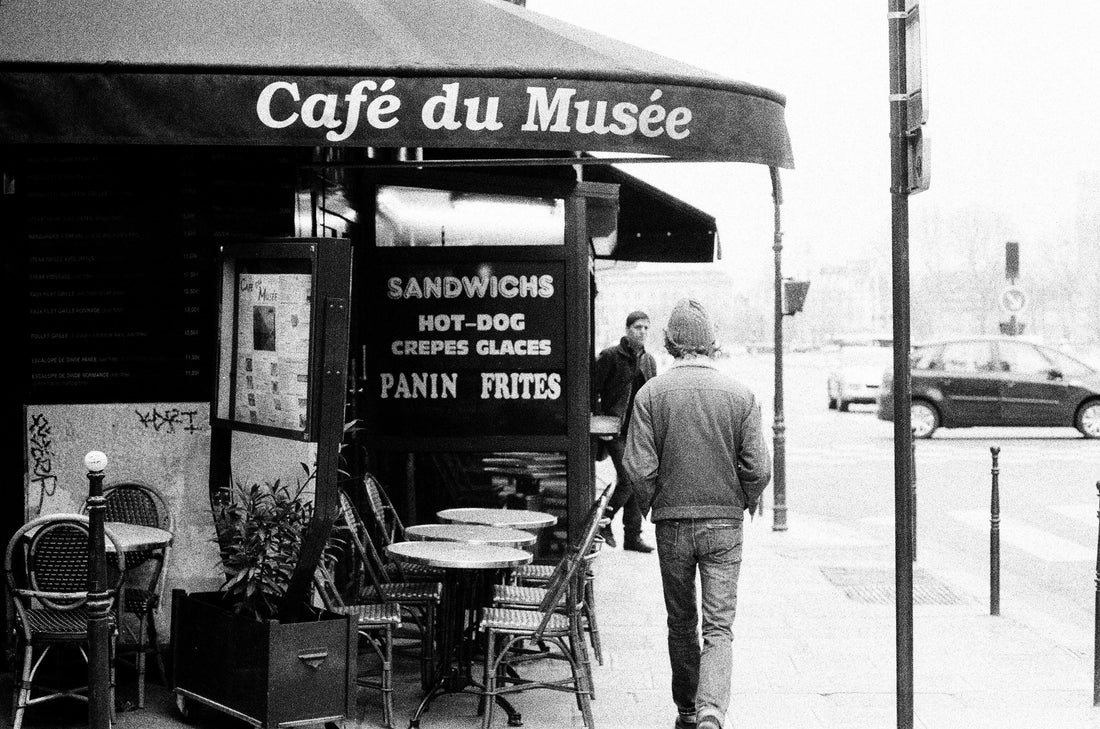
The Fascinating History of Coffee in France and Its Influence on French Culture
Share
Coffee, that little wonder, wasn’t always a part of everyday life in France. But once it landed here in the 17th century, it quickly became a staple of French culture. From the Parisian salons of the Enlightenment to the crowded bistros of the 20th century, coffee has made itself indispensable. How did a simple beverage become both a source of inspiration for philosophers and an essential pleasure for so many French people? In this article, we’ll explore the fascinating history of coffee in France and see how it continues to influence the culture, habits, and even creativity of the people here.
The Arrival of Coffee in France: From Exotic Origins to the Court of Louis XIV
The history of coffee in France begins like many beautiful stories: with unexpected encounters and a touch of curiosity. In the 17th century, traders and diplomats returning from the Middle East brought back not only spices, they also had in their luggage this mysterious new beverage: coffee.
First landed in Marseille, thanks to its flourishing port, coffee gradually made a place for itself, attracting the attention of the elite. But it was really at the court of Louis XIV that the magic happened. The Sun King, always in search of new experiences, was quickly won over. Around him, the aristocrats adopted the drink, which then became a true symbol of refinement. Coffee, with its powerful aroma, seduced the palates of high society even before reaching those of ordinary citizens.
Of course, at that time, coffee remained a rarity, reserved for those lucky enough to obtain it. But it wasn't long before the drink made its way from the royal salons to the streets of Paris, where it would soon play a central role.
The rise of Parisian cafés and their role in society
Once coffee had made its mark in aristocratic circles, it soon took to the streets of Paris. The first public café opened in 1686, and it was not just a place to enjoy a drink: it became a veritable place for meetings, debates and exchanges. This first café, the famous Café Procope , quickly became the rallying point for the intellectuals, artists and thinkers of the time.
Parisian cafés quickly evolved into the nerve centers of social life. Customers flocked there not only to enjoy coffee, but above all to discuss revolutionary ideas, the latest political events or artistic trends. They were the incubators of modern French thought. Figures such as Voltaire, Rousseau and Diderot were great fans of these places, where they found an audience ready to debate anything and everything, often over a cup of coffee.
Coffee became more than a beverage: it became the fuel for thought and revolutions. The cafés themselves, with their unique atmosphere, played a key role in the development of the ideas that would transform France. It was in these spaces of freedom that French society began to reinvent itself.
The golden age of bistros and the roots of coffee in French daily life
As Parisian cafés continued to flourish and become essential places for intellectual debate, a new era began in the 19th century: that of the bistro. Coffee, now much more accessible, spread throughout French society. Bistros proliferated in every city and village, becoming places where people met to drink coffee, chat, and talk about the world.
The bistro, with its relaxed and friendly atmosphere, became a true pillar of French culture. Coffee was served there from morning to night, to workers and artists, to laborers and thinkers alike. Politics was discussed, cards were played, and the previous day's match was replayed. But above all, coffee became the companion to simple everyday moments: a pleasure accessible to all, which transcended social classes.
The era also saw the emergence of the café as a central element of cultural life. Writers, such as Hemingway or Sartre, regularly frequented these places, in search of inspiration or simply to enjoy a moment of calm with a cup of coffee in hand. The café became almost a character in its own right in literary works, songs, and even films, embodying this French art of living, where every moment is celebrated.
The Emergence of Specialty Coffee in France: Back to the Essence of the Bean
While France has been known for its love of coffee for centuries, specialty coffee is a much more recent movement, but one that has quickly gained popularity. This phenomenon is a true revolution in the way we consume and understand coffee. Unlike industrial coffees where volume often takes precedence over quality, specialty coffee focuses on the origin, traceability, and finesse of each cup.
The arrival of specialty coffee in France may seem paradoxical, in a country where classic coffee is often an espresso quickly consumed at the counter. However, over the years, many micro-roasteries and specialty coffee shops have emerged, especially in large cities like Paris, Lyon, and Bordeaux. This movement, driven by coffee enthusiasts, advocates an artisanal and ethical approach: each bean is carefully selected, often directly from producers, guaranteeing respectful agricultural methods and better remuneration for farmers.
Specialty coffee lovers seek out complex and unique flavor profiles. Whether filter, Chemex, V60, or even espresso, each cup becomes an experience in its own right. More and more consumers are turning to these coffees that reveal surprising notes of fruit, flowers, or chocolate. This quest for perfection has also changed the way coffee is perceived in France, bringing this beverage closer to the world of wine, where terroir and production method are key elements.
Specialty coffee continues to have a profound influence on the French coffee scene, with numerous events, barista competitions, and an ever-more active community of enthusiasts. This shows that, even in a country where coffee has long been a mere daily habit, there is still room for innovation and the rediscovery of this age-old beverage.
Conclusion: Coffee, still at the heart of French culture, and in full reinvention
Today, centuries after its arrival, coffee remains deeply rooted in the daily lives of the French. Whether enjoyed in a Parisian café with a view of the Eiffel Tower, or shared with friends in a neighborhood bistro, coffee continues to play a key role in culture and social interactions.
However, a new page is being written in the history of coffee in France: that of specialty coffee. More than just an everyday drink, coffee is now becoming a taste experience in its own right, where the quality of the bean, traceability and artisanal roasting methods take precedence. This movement is reinventing our relationship with coffee, inviting us to explore complex flavors and celebrate the expertise of producers and roasters.
France has made coffee much more than just a beverage: it has become a cultural institution, a moment of pause, reflection, and sometimes even revolution. Whether it is a quick espresso, a long coffee or a specialty coffee savored using the filter method, this small black cup is an integral part of the French art of living. And even if the fashions and trends surrounding coffee evolve, its essence remains the same: a symbol of sharing, conviviality, and creativity.
It’s fascinating to see how an imported beverage has managed to integrate and adapt to a country, until it becomes an essential part of its identity. Today, with the rise of specialty coffee, this story continues to grow, reminding us that innovation and rediscovery are always possible.

